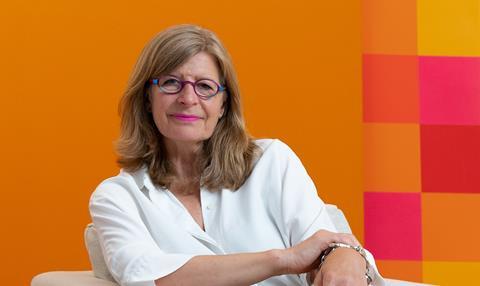Getting a TV series on air doesn’t have to be the first step – or indeed only destination – for today’s indies to thrive and survive, says Lola Media founder Erica Wolfe-Murray
Most of the small to medium-sized production companies I’ve advised come to me with two seemingly interlinked ambitions: to secure more programming commissions and scale up. In our rapidly changing, ever-challenging world, both can prove tough. However, with today’s warp speed media shifts, content can mean many things, and small can definitely be beautiful, flexible, profitable and, dare I say it, fun. I see this in action every day.
As a programme maker (or screen-based storyteller), you have a superpower. It’s called creativity. And remember, creativity isn’t just limited to screens. By applying it more widely, you can build your own story brands in fresh, interesting ways. You then own them, their audiences, those all-important rights, giving you infinitely more clout in the marketplace. Building your own IP from the ground up takes a very proactive approach, rather than waiting for the benefits to trickle down from a TV show that you created, but for which someone else holds most of the rights.
Ex-SYCO Entertainment producer Julia Thompson is doing just that. After 18 months, her under-the-radar Viking brand Havelok’s Kingdom has already spawned live VR events, immersive experiences, books, products, activities and animation. TV is further down the track, but conversations - driven by high levels of audience engagement across these multiple touch-points – have already started.
Because young companies like this have neither big teams – a micro company typically has nine or fewer employees - nor the budget for expensive commercial executives, they’re doing it their way on their own terms. Finding audiences in places bigger companies rarely look, forming inventive collaborations to get the work done and evolving as media businesses, not just prodcos. They know that spinning and flexing their IP is everything.
But don’t complacently think these micro media magnates can be overlooked whilst bigger companies scoop up the choice commissions.
Another person I have worked with is Eloise Singer, the multi-award-winning, Emmy-nominated founder of Singer Studios. Her big breakthrough was the Meta-funded VR game Pirate Queen. Based on the historical character Cheng Shih, the most successful pirate who’s ever lived, Pirate Queen was the first brand to emerge from VR gaming.
Now linked to Lucy Liu, this growing brand has a podcast, graphic novels, and an animated series in development with a major streamer. Singer understands that harnessing her IP inventively is the secret. Her next VR project Trailblazer, about Bertha Benz of the MercedesBenz family, is already out with Daisy Ridley attached. Lesley Paterson (All Quiet on the Western Front) has just been announced as the film’s scriptwriter. From a company with a team of five.
However, this micro media inventiveness across wide-ranging audience touch points, allowing for interesting and different growth potential, is not limited to newer indies.
With the downturn in children’s commissioning, and the US kids’ online privacy laws leading to plummeting ad revenues on their popular multi-brand kids’ YouTube channel, experienced children’s indie, Adastra, (makers of 118-ep Grandpa in my Pocket, now in 108 territories, and Mimi’s World) decided on a different path.
For their new character brand (currently under wraps), they’re not looking to screens to find an audience. Intrigued by the growth statistics, they’re going audio first. Audio books, dramatisations, music and songs with print books close behind. They’re already talking to a well-known brand with aligned needs that brings Adastra’s heartland audience. With a team of two.
I could detail myriad more micro production companies who have shifted their play to ‘media companies’, determinedly owning their IP, exploring audiences in different places.

It’s exciting, truly creative and has the potential to build commercial resilience that doesn’t rely on a single commissioning individual saying ‘yes’. The long-term potential for these new micro media magnates is for them to determine. I watch them knowing they’ve got the ingenuity to make it work.
- Erica Wolfe-Murray is a creative IP expert and founder of innovation studio Lola Media. She is a workshop leader and mentor on the government-funded Create Growth programme, a mentor for the R&D CoSTAR National Lab and has worked with CreativeUK on its Female Founder scale-up programmes for five years.








1 Readers' comment